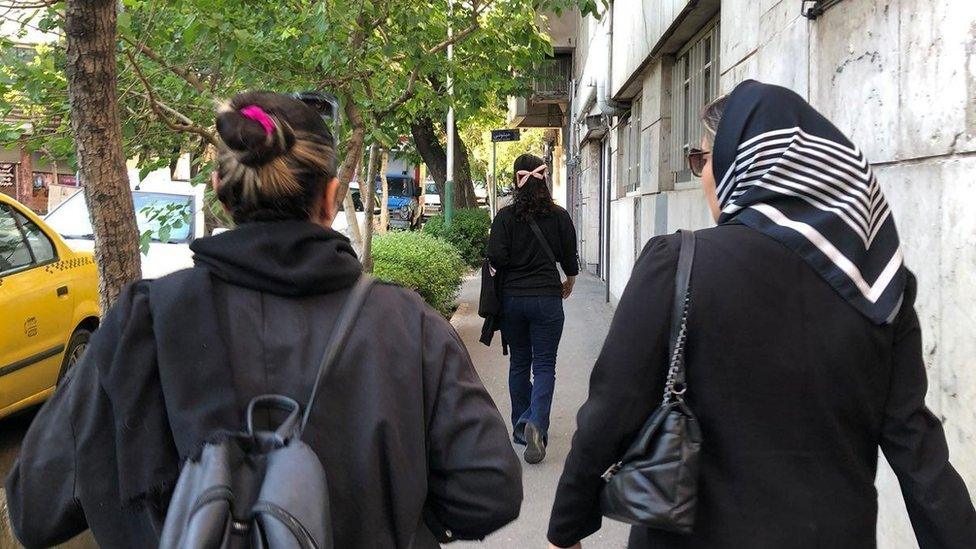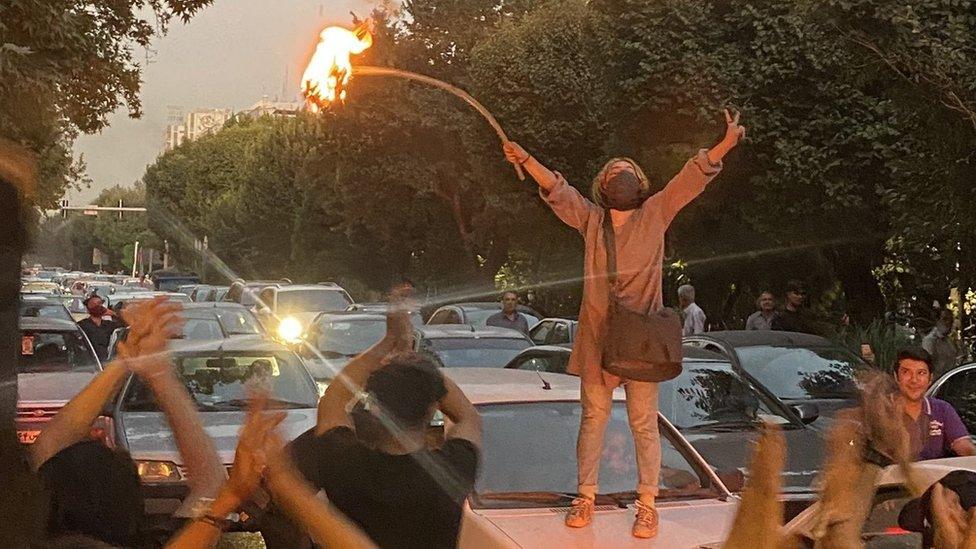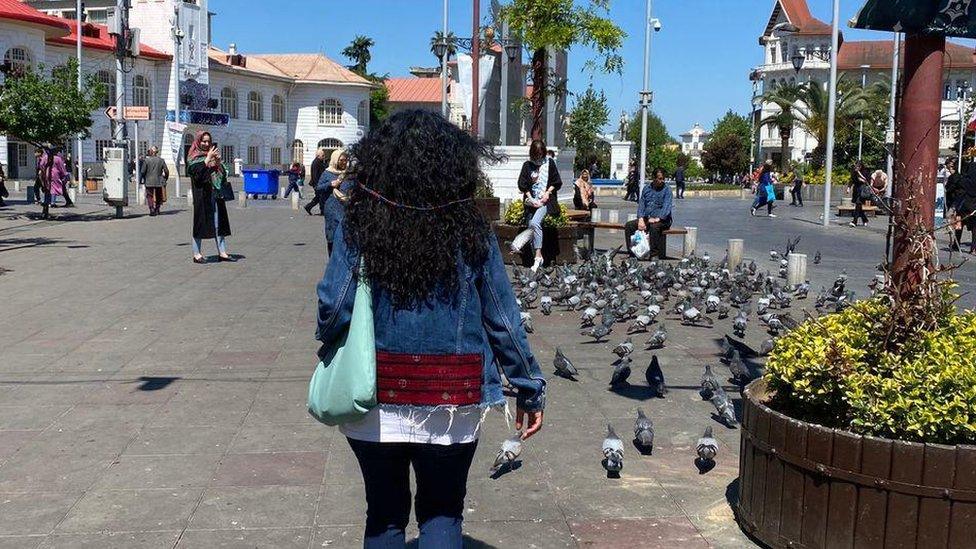‘Your car will be confiscated’: Iran women defy hijab law despite threats
- Published

Some women in Iran are choosing not to cover their hair as part of ongoing protests
Women in Iran are defying fresh attempts by authorities to use technology to enforce the compulsory dress code that has been a focus of continuing protests across the country.
In April, national police chief Ahmad Reza Radan announced the launch of a "smart" programme involving surveillance cameras to identify women failing to cover their hair or wear loose-fitting clothing in public despite the threat of fines or imprisonment.
He warned that those caught breaking the hijab law for a second time would be referred to courts, that cars carrying female passengers with uncovered hair would be confiscated, and that businesses turning a blind eye would be closed.
However, his announcement provoked derisive responses on social media, with women posting photos and videos of themselves not wearing the hijab in public spaces across the country.
'Not very accurate'
For several years, people have reported receiving warning messages about dress code infringements inside their cars being identified by traffic control cameras.
But this is the first time that the authorities have threatened to confiscate cars or fine people for it.
"I received an SMS over a month ago that stated my licence plate number after a road trip I took with my female friends to the city of Damghan. We were mostly not wearing the hijab in our cars," one woman told the BBC.
Other people have reported receiving similar messages, which warn them that their cars will be confiscated if they appear in public without the hijab again. The messages also include links to a website where they can contest the alleged offence.

The text message from Iranian authorities warns a car owner: "If the offence [of not wearing a headscarf] is repeated, your car will be confiscated."
One man said he was sent a message that listed his car's licence plate and a location where he had driven on a particular day, "except I was not with a woman at that time and place".
"I was on my own. Their cameras are not very accurate," he added.
The man, who did not want to be identified, sent a photo to the BBC showing that he had long hair.
Men have also reported that following April's announcement they received an apparently indiscriminate message from the police saying: "Dear citizen, it is necessary to respect and comply with the law of the hijab."
They poked fun at the move, with one man writing on Instagram: "Is this how smart your technology is?"
Some lawyers have argued that this new move by the police and the judiciary is illegal.
"The confiscation of cars because of a lack of hijab has no legal basis in the constitution and is a crime," Mohsen Borhani wrote on Twitter. The judiciary responded by reiterating that "taking off the hijab in public is a crime".
'We haven't forgotten'
Meanwhile, women have said they are willing to continue the fight against the mandatory hijab, despite the increased risk of being punished.
"Too many young lives have been lost in the past few months for us to go back to how things were before," said one young woman in the city of Semnan.
She was referring to the brutal suppression of the protests that erupted following the death in custody of Mahsa Amini last September. The 22-year-old had been detained by morality police for allegedly wearing her hijab "improperly".

Women set fire to their headscarves at protests that erupted swept across Iran in September 2022
Since then, many women have burned their headscarves or waved them in the air during demonstrations to chants of "Woman, Life, Freedom".
Almost nine months on, they are still fighting to abolish the system that controls their personal and public lives.
"This is an Islamic dictatorship, one of its main pillars is the oppression and control of women, that is why the fight against mandatory hijab is something that really shakes the core of this system," a woman from Tehran told the BBC.
Another woman in the capital said: "I want to show that the 'Woman, Life, Freedom' movement is still alive and that we have not forgotten the death of Mahsa Amini."
'Women will not surrender'
A feminist activist, who has been arrested since the protests began but is out on bail, told the BBC: "From what I have seen in the past few months, women will not surrender. Women seem to be unfazed by these new threats."
She also believed authorities had found themselves in a difficult situation.
"That's why they have pushed the police forward in this fight, but they have not increased their jurisdiction or given them much power to fight against women."

Women can face strict penalties if they are caught not covering their hair
There is also opposition to the new policy from regime loyalists.
"To get the police involved in the issue of hijab will only widen the rift between the people and the state," said Hossein Alaiee, a former high ranking Islamic Revolution Guard Corps (IRGC) commander.
"We saw how the work of the morality police created a backlash and increased the number of women without hijab."